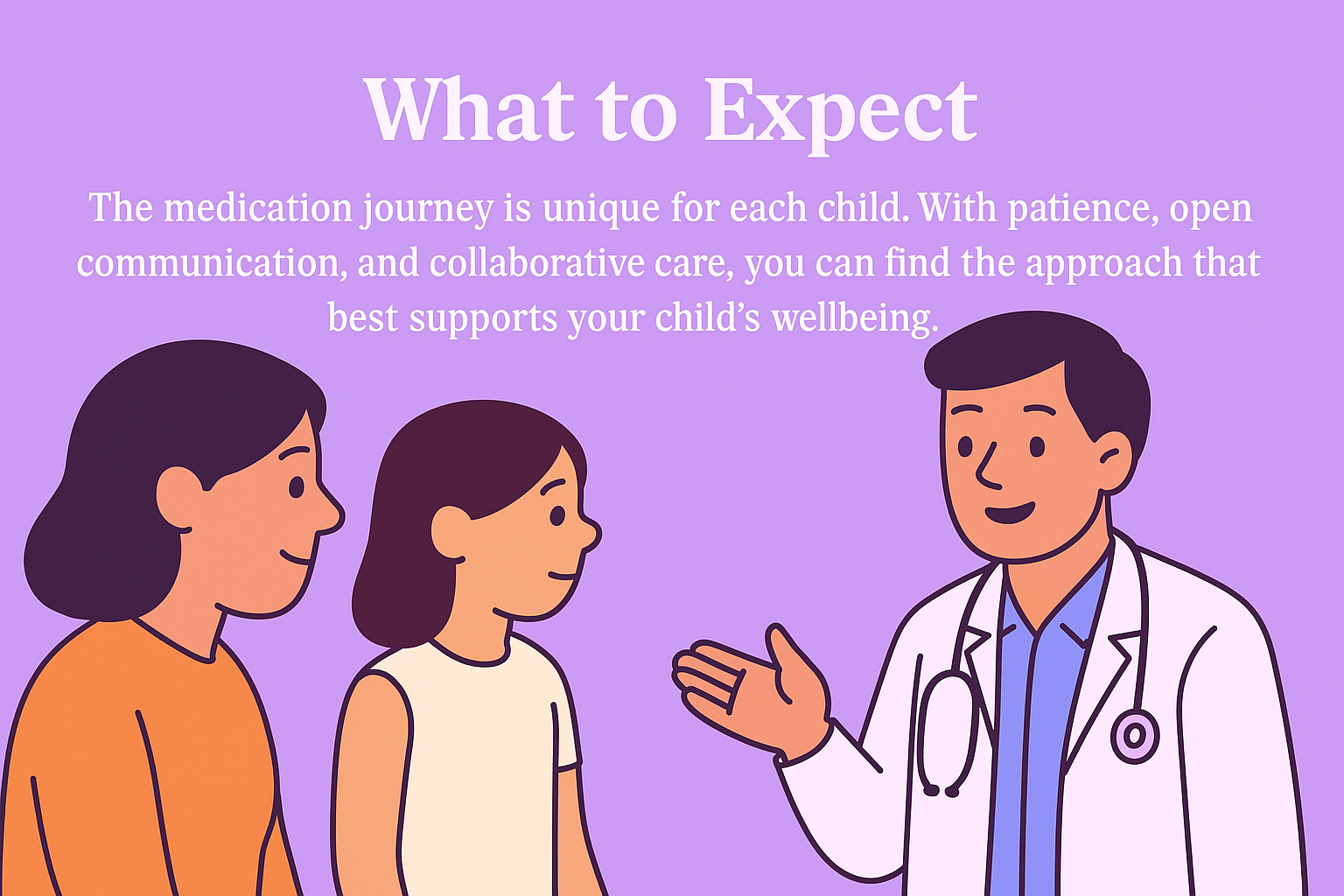Psychiatric Medication
Comprehensive information about psychiatric medications for children, including benefits, side effects, and what to expect.

Welcome
It's completely understandable to feel worried, nervous, or even overwhelmed as you consider medication for your child's mental health. Many parents arrive here because they've tried other strategies—therapies, lifestyle changes, school supports—and still see their child struggling.You're not alone.
Whether you're feeling stressed, desperate, or simply searching for relief for your child, take a moment to acknowledge how difficult and brave this journey can be.
Medication can be a valuable and effective part of a child's treatment plan, but it's important to remember that it's rarely the only solution. It works best when combined with psychotherapy, parent counseling, support at home and school, and open communication between everyone involved in your child's care.
When thinking about medication, consider not just the physical side effects, but also the emotional impact—how your child might feel about taking medication and how it might affect their sense of self. Some children may worry about being "different" or "broken," and these feelings deserve understanding and compassion.
Also keep in mind that medication prescribing is not always straightforward. Every child metabolizes medication differently, and finding the right dosage and type can take time and adjustments. It's essential to stay in close contact with your child's prescribing provider, ask questions, and work collaboratively to find the approach that best supports your child's needs.
We're here to explore this together, step by step, with care and understanding.
Overview
Understanding the role of medication in child mental health
Medication can be a helpful part of treating certain mental health conditions in children, including ADHD, anxiety, depression, and mood disorders. When used appropriately and in conjunction with therapy, medication can reduce symptoms and support a child's overall well-being.
It's important for families to understand the benefits, potential side effects, and the role medication plays within a comprehensive treatment plan. Medication decisions should be made collaboratively between families, children (when appropriate), and healthcare providers.
Important Considerations
- Medication is typically one part of a comprehensive treatment approach
- Regular monitoring and follow-up are essential
- Finding the right medication and dosage may take time
- Open communication with your child's healthcare provider is crucial
